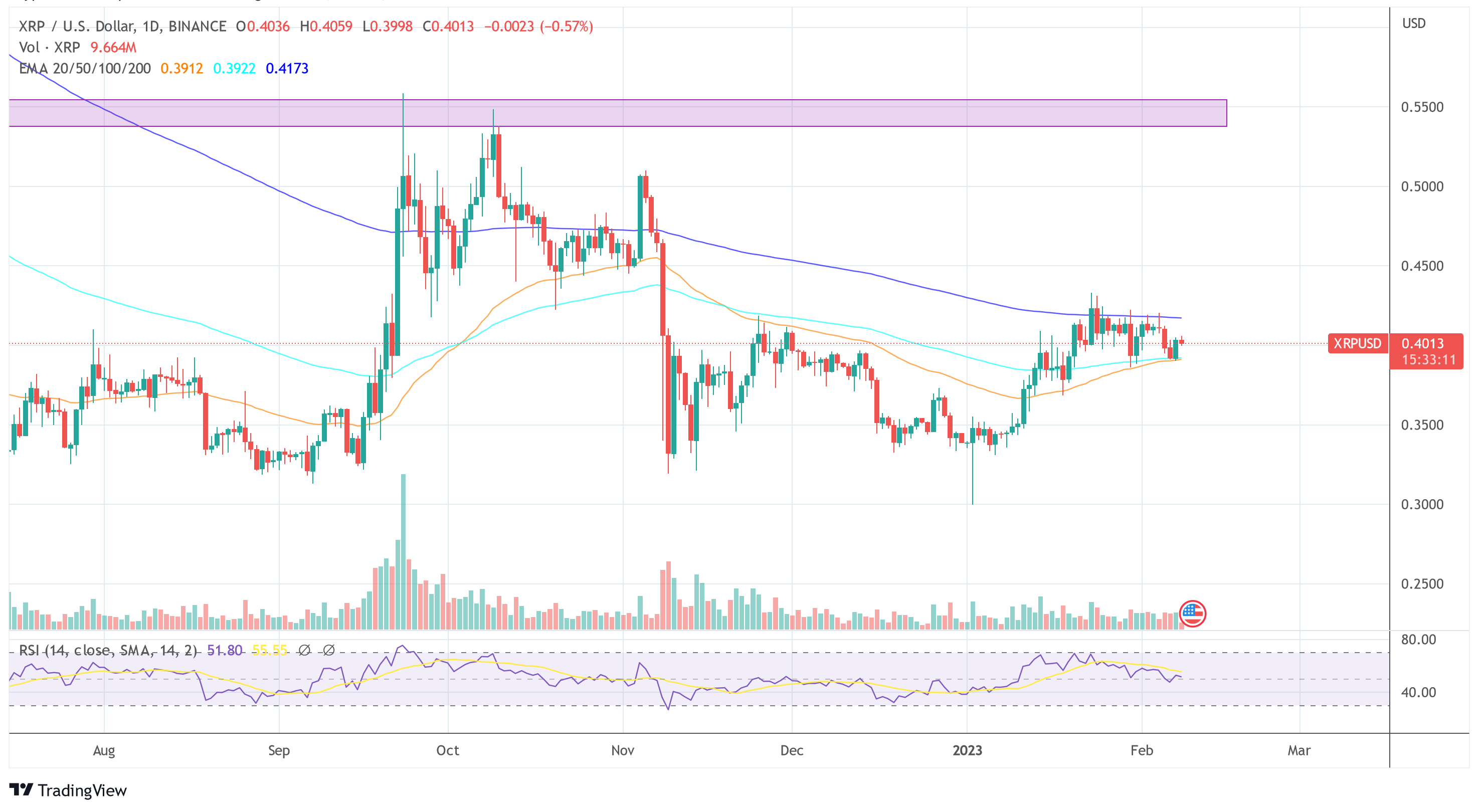Latest news about Bitcoin and all cryptocurrencies. Your daily crypto news habit.
Yesterday, the Bank of England and the UK Treasury published a consultation paper on the digital pound, a U.K. Central Bank Digital Currency (CBDC) – mentioning Ripple’s technology at one point. In the 116-page document, the Central Bank of England describes why it is considering launching it and what the CBDC might look like.
This year, the Central Bank of England wants to gather public opinion through a consultation. If the decision is made in favor of a digital pound, it would be implemented in the second half of the decade. However, cash would remain in circulation and the CBDC would only serve as a supplement.
The digital pound would be for everyday payments by households and businesses and would be stored directly at the Bank of England, but users would access it through digital wallets offered by private companies.
How Is Ripple Involved In The CBDC Of England?
What role Ripple will play in the project is relatively unclear at this time. However, the U.S. company is mentioned in the consultation paper under the heading “Enable private sector innovation” and in connection with RTGS (Real-Time Gross Settlement).
The report states that as part of the RTGS renewal program, the central bank is focusing on developing a roadmap for continuous improvement of the RTGS service in line with industry feedback and incorporating elements from previous feasibility studies and experiments.
In reference to this, the Bank of England cites two projects: a DLT proof of concept on which it worked with Baton Systems, Clearmatics Technologies Ltd, R3 and Token, and a cross-border synchronization project. This is where Ripple comes in:
Cross-border Synchronisation: a joint project with Ripple demonstrating that synchronised FX transactions in two different simulated RTGS systems can be achieved, leading to the incorporation of synchronisation functionality into the roadmap for renewal.
Furthermore, the central bank states that it has been working with industry to develop new strategies and structures so that the benefits of innovative technologies can be enjoyed by new types of private sector companies. For example, in 2017, the BoE expanded access by allowing non-bank payment service providers to apply for an RTGS settlement account.
In 2021, the Bank introduced its omnibus account policy, which allows payment system operators to fund their participants’ balances with central bank money. And going forward, the Bank of England intends to continue to encourage innovation:
The Bank continues to engage with private sector firms to understand potential new models of wholesale settlement and how these can be supported going forward.
Whether this also refers to Ripple can only be speculated. In a footnote to its Ripple mention, the Bank of England refers to its website and the Ripple proof of concept from 2017.
There, it is stated that the central bank conducted a proof of concept with Ripple to explore the synchronized movement of two different currencies across two different real-time gross settlement systems connected to Ripple Connect and the Interledger protocol.
“This engagement concluded upon completion of this proof of concept. We will continue to work with businesses on fintech proofs-of-concepts whenever this may help us fulfill our mission,” the Bank of England website reads.
Therefore, such news as “the Bank of England will work with Ripple for its CBDC” are definitely premature. Still, the connections between Ripple and the BoE are interesting. As Bitcoinist reported, Ripple is also part of the Digital Pound Foundation, a lobby group that supports the introduction of a digital pound.
At press time, the XRP price stood at $0.4013, still trading below the crucial 200-day EMA.
Disclaimer
The views and opinions expressed in this article are solely those of the authors and do not reflect the views of Bitcoin Insider. Every investment and trading move involves risk - this is especially true for cryptocurrencies given their volatility. We strongly advise our readers to conduct their own research when making a decision.
